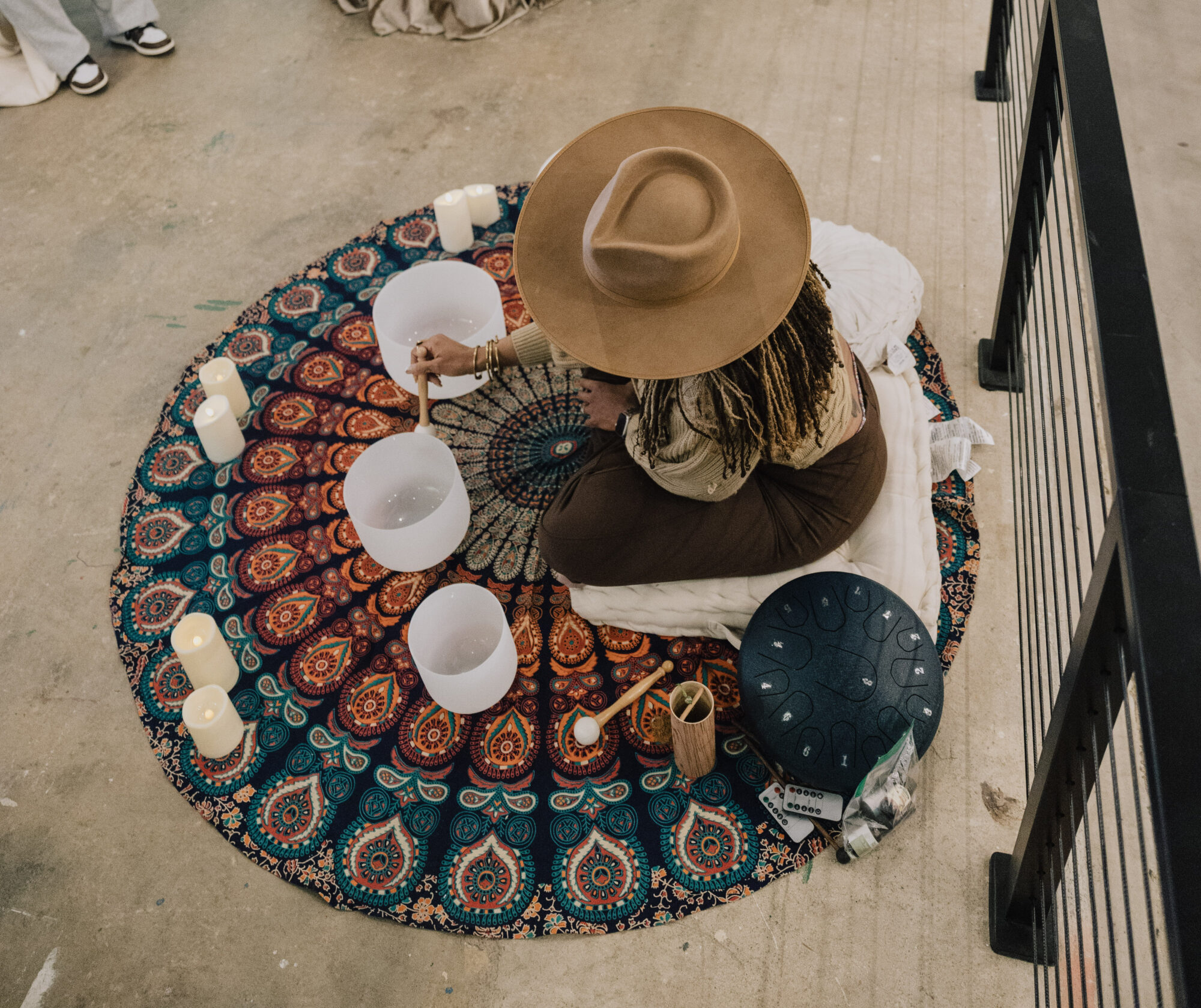“Are you sure, sweetheart, that you want to be well? … Just so’s you’re sure, sweetheart, and ready to be healed, cause wholeness is no trifling matter. A lot of weight when you’re well.” – Toni Cade Bambara, Salt Eaters
Cultivating a sense of responsibility toward collective wellbeing and maintaining a regular practice of care is central to actualizing the healing justice framework. As the concepts of care and wellbeing have become co-opted by capitalism, many have come to associate these practices with consumerism. This, in turn, has made them seem unattainable or even unnecessary.
However, as we’ve seen in historical struggles toward liberation practicing care and wellbeing requires discipline to oneself and that of our communities. By oneself we don’t mean indulgence or methods of practice centered on the individual; rather a commitment to ongoing transformation for the sake of building power and thriving communities.
Within RJE’s pillars to resource organizations building power and thriving communities, we find wellbeing as a central component of our approach to this work. We understand this work moves at the speed of trust, is critical to fund, and must be embodied. Here are just a few examples of how we‘re in practice:
Fostering Collaborative Power Sharing
Uplifting the voices of Black, Indigenous, and communities of color, centering their visions, sharing decision-making power, and shifting resources to them. This is exemplified in our investment in D.C.-based artists and cultural workers, one that demonstrates our commitment to fortifying the legacies of D.C. natives, especially Ward 7 and 8 residents. Artists and cultural workers shape our experiences in the world and tell the truths of our living conditions; their wellbeing is central to Black ancestral traditions, livelihood, and futures.
Developing the Ecosystem Network
Investing in the leadership, success, and wellbeing of Black, Indigenous, and communities of color. When RJE convenes its partners, we look to their expertise to shape the agenda towards advancing movement work, strengthening relationships, and deepening trust. We understand that the work requires spiritual, mental, and physical fortitude that is not easily replenished. Across the political landscape, movement leaders find themselves experiencing high rates of burnout that grants alone cannot intervene on. RJE responds by curating spaces that nourish our partners and invest in their wellbeing with the intention to return to their communities revitalized.
In December 2024, RJE hosted the inaugural Journey to Joy: A Wellness, Empowerment, and Connection Experience for Black women across the D.C. metropolitan area. It is critical now, more than ever to invest in spaces that fuel the power of sisterhood as community, maintains somatics as a foundational practice, and situates culture and sound as the bedrock of healing.
Check out the video below to get a glimpse of what is possible when you place joy and wellbeing at the center and stay tuned for this year’s Journey to Joy invitational:
As many in the movement look to find their footing in establishing a practice of wellbeing, we hope that these offerings can put them on the right path:
- Reading with others: Study has often been relegated to the confines of academia, but the people of the Black liberation movement studied rigorously to inform their ways of being. Studying with friends, family, neighbors, even complete strangers can better your practice of wellbeing. Here are a few recommendations from our team:
- Community Care: Community care as a practice sustained movements like the legacy of the Club from Nowhere. Having a practice of wellbeing is grounding in your purpose, being both decisive and consistent to sustain our communities beyond any crisis. Some questions to consider: How do you need to be cared for? How do you care for others? What does that practice look like currently? Where is your nearest mutual aid group and how can you be in practice with them? Send the email!
- Presence: in a world that structures profit over people, we have a responsibility to practice being present with ourselves and others. Not for the sake of practice, but to listen to our bodies, still our ever-busy minds, and to relate to others without the barrier of a screen. Pacing, regardless of the task may leave things incomplete, but without wellness, we cannot be whole. We can practice:
- Ancestral: for generations, our lineages had various methods of wellbeing whether or not we want to maintain them. Have a conversation with an elder (or many) to understand how they define and practice wellbeing. Think about their “why” and how their practices may influence yours. What can we receive from our ancestors that continues this lineage? We do this to deepen our understanding of our histories, expand our practice based on our current conditions and think about the next seven generations who will come after us in search of wellbeing and healing. Some examples of these practices include:
What are your wellbeing practices? How will you show up for yourself and your people on the path to healing? Are you sure, sweetheart, that you want to be well?
